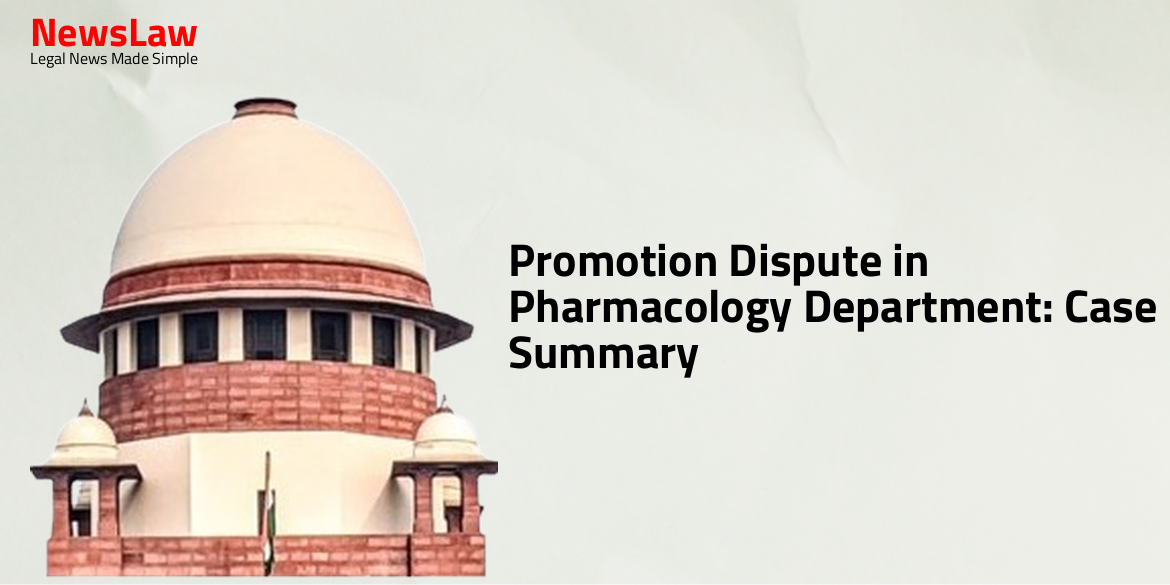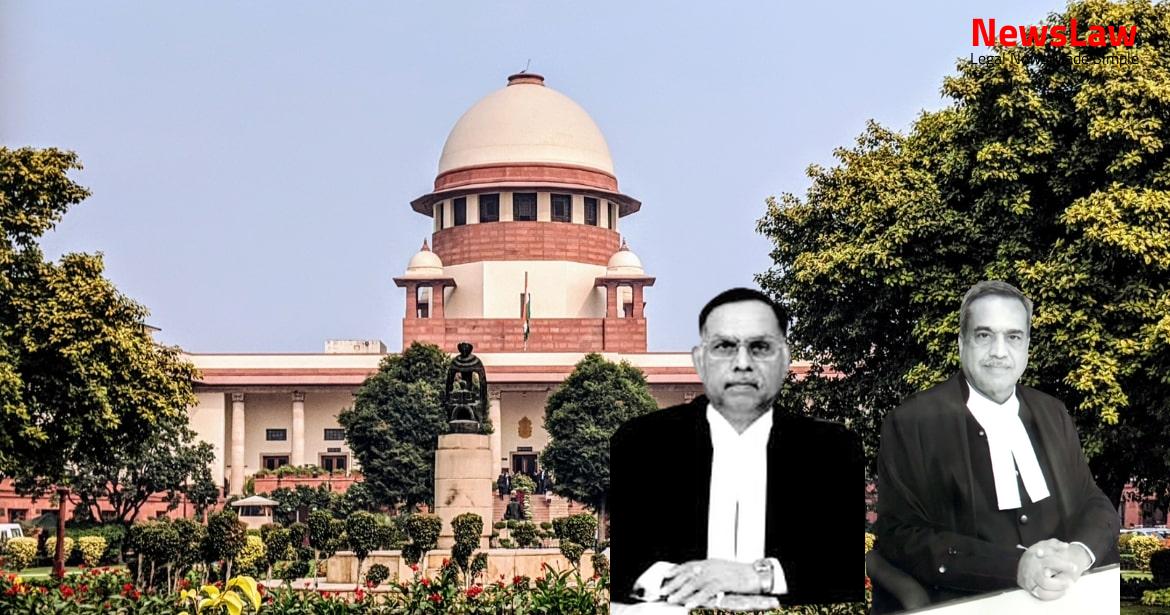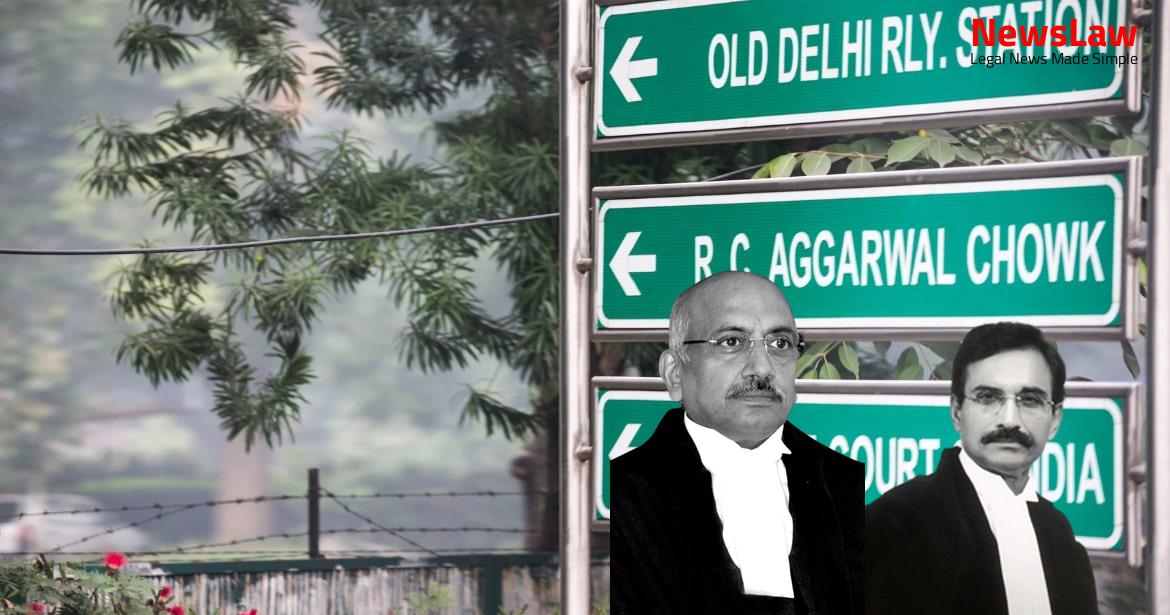The court’s legal analysis in a recent case sheds light on the importance of transparency in the tender process and the scrutiny of commercial contracts. Through a detailed examination of administrative decisions, the court emphasized the need to prevent arbitrariness and irrationality in government actions. This blog post delves into the intricacies of judicial review in tender evaluations and contract awards, highlighting the principles of commercial prudence and the limitations of court interference. Stay tuned to understand the role of courts in ensuring fairness and transparency in public sector contracts.
Facts
- The Division Bench allowed the writ appeal and directed the State to float a fresh tender within four months.
- Existing successful tenderers were permitted to continue providing supplies under the same terms and conditions.
- Fresh tender specifications should be generic to ensure wider participation or opt for single-source procurement.
- Technical specifications were to adhere strictly to the requirements of the Tender Act for transparency and regulation in public procurement.
- The Government Order used ‘multiple vendors’ while the Commissioner of Prohibition and Excise used ‘more than three bidders’ regarding technical specifications, causing a deviation from generic qualifications.
- TSC report confirmed all three bidders, including Uflex and Montage, met technical and product specifications.
- Previous challenges to the tender by Uflex and Montage were unsuccessful in other High Courts.
- The High Court allowed processing of bids from prospective bidders to meet the requirement of minimum three successful bidders.
Also Read: Supreme Court Judgment on Single Till Mechanism for HRAB Calculation: A Comprehensive Analysis
Arguments
- Uflex invested Rs.152 crore in Montage due to an acquisition.
- The preference shares held by Uflex in Montage do not allow for influence.
- The impugned order imposed adverse civil consequences based on ‘justifiable doubts’.
- Petitioner invested Rs. 10 crore and employed 87 people after winning the tender.
- The Division Bench’s approach of scrutinizing the business relations of Uflex and Montage was deemed inappropriate.
- Alpha and Kumbhat’s actions were seen as attempting to frustrate the award of the tender to Uflex.
- The integrity and reliability of the NIT were questioned due to these actions.
- Judicial scrutiny of the terms of the NIT was considered inappropriate.
- The alleged nexus between Uflex and Montage was examined and dismissed by the Madhya Pradesh High Court.
- Uflex relied on the Tata Cellular judgment to support their position.
- Montage supports Uflex’s position and is concerned about negative impacts on Montage in other contractual and tender matters.
- Kumbhat emphasized the government mandate for generic technical specifications to ensure wider participation.
- Kumbhat criticized the lack of raising the disqualification of Hololive on certain NIT conditions before the single judge.
- Kumbhat pointed out that there were only two eligible bidders, leading to the award going to the same party.
- Kumbhat highlighted that four other states awarded tenders with the same specifications to two eligible bidders, indicating a pattern of limited competition.
Analysis
- Judicial review of administrative actions aims to prevent arbitrariness, irrationality, unreasonableness, bias, and mala fide.
- The purpose is to ensure the lawfulness of decision-making, not the soundness of decisions.
- Parties in tender evaluations and contract awards should adhere to principles of commercial prudence.
- Courts should not interfere in the decision-making process of accepting or rejecting bids.
- Appropriate changes in cost provisions recommended by the Law Commission of India should be implemented by Parliament and High Courts.
- Costs should generally follow the outcome of the case, be realistic, and aim to deter frivolous litigation.
- Similar cost principles are followed in other countries like Australia, Hong Kong, and Canada based on common law principles.
- In commercial litigation, parties must consider commercial interests, including the possible outcomes of court decisions.
- Tender challenges in writ proceedings, though meant to ensure fairness, have become routine, affecting the efficiency of public sector contracts.
- The public sector facing challenges from the private sector necessitates the scrutiny of tenders in writ proceedings.
- Interference in tender awards by courts is limited if government actions are reasonable, fair, and in public interest.
- Courts should not imply terms in contracts if the contract makes business sense without them.
- Interference in commercial contracts should only occur if the decision-making process is arbitrary or irrational.
- The court’s role is to interpret and apply contracts as made by the parties, ensuring transparency and understanding of terms before entering agreements.
- The court emphasized the importance of judicial restraint in administrative actions and the limitations of the court’s expertise to correct administrative decisions.
- The court highlighted that the decision-making process in administrative matters should not be overruled unless it is arbitrary or irrational.
- The court noted that reviewing administrative decisions can lead to substituting the court’s decision without the required expertise.
- Judicial interference in administrative decisions should only occur if the decision is so irrational that no responsible authority would make such a decision.
- The court mentioned that the objective is to keep the role of various committees, such as the Technical Specification Committee and the Tender Scrutiny and Finalization Committee, separately defined.
- The court stated that a fair play in the joints is necessary for administrative bodies functioning in the administrative or quasi-administrative sphere.
- The court focused on the principles elucidated in the Tata Cellular case regarding judicial review and administrative decisions.
- The court underlined the need for transparency in tendering processes without disproportionately interfering in the decisions made by the tender-inviting authority.
- The court warned against mindless appeals and emphasized on the principle that costs should follow the cause in commercial tender matters.
- The court reiterated the need for checks and balances before the tendering process itself to ensure fairness and proper evaluation of tenders.
- The court requested the parties to file their bill of costs to quantify actual costs for the succeeding party.
- The main objective was to implement the principle of making the losing party pay the actual costs for the succeeding party.
- The case involved a dispute between two commercial entities regarding the award of a tender to two other entities, highlighting commercial interests.
- The court decided to allow actual costs but adjusted them for the appellant by reducing them to 50% of the indicated amount of the Advocate-on-Record.
- The tender jurisdiction is important in scrutinizing commercial matters, and in cases where parties frequently challenge tender awards, the succeeding party should receive costs while the losing party must pay costs.
Also Read: Selection and Appointment of Judicial Officers in Himachal Pradesh
Decision
- Total costs payable to the petitioner/appellant: Rs.23,25,750/-
- Costs allowed for the State Government in defending the litigation: Rs.7,58,000/-
Case Title: UFLEX LTD. Vs. THE GOVERNMENT OF TAMIL NADU (2021 INSC 492)
Case Number: C.A. No.-004862-004863 / 2021



